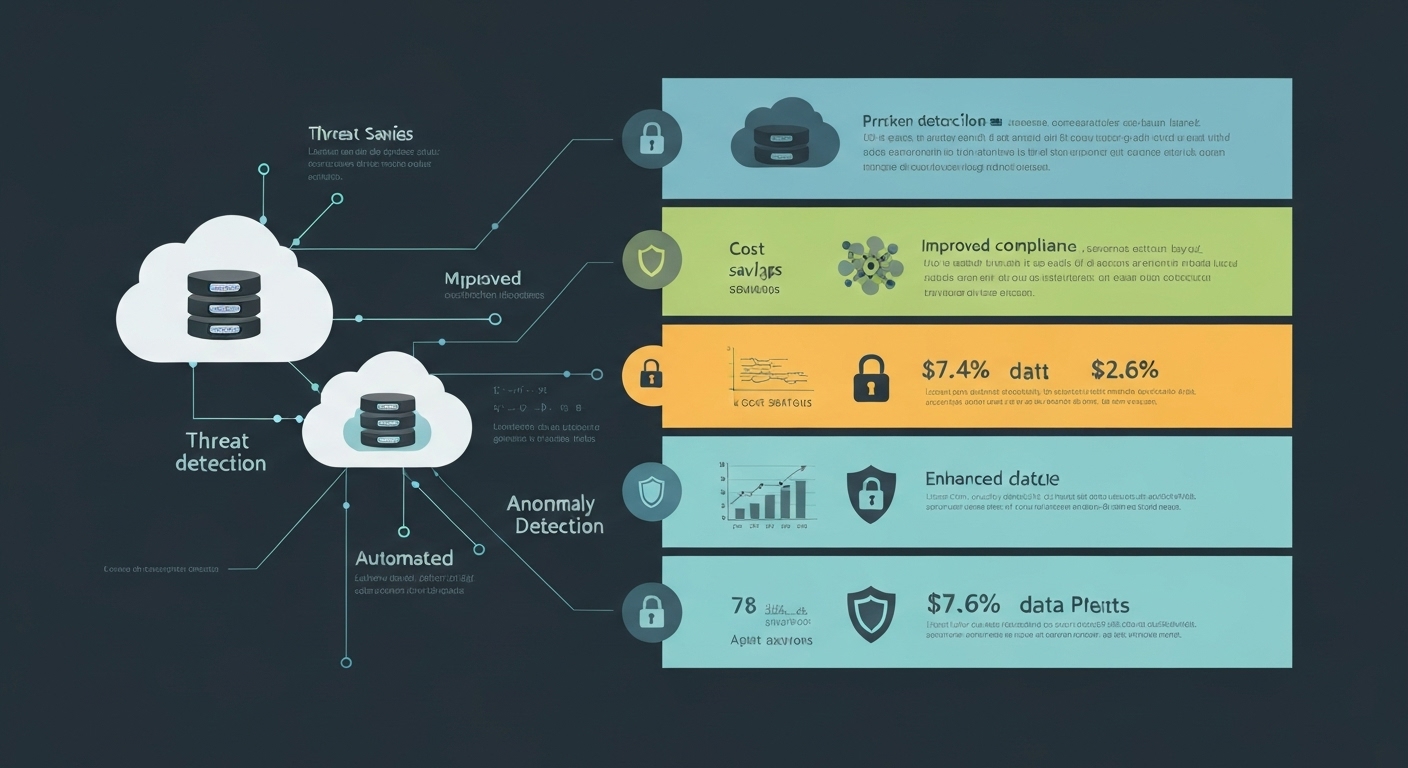AI – Driven Security for Cloud Storage : Protecting Your Data
Ai-driven security for cloud storage is transforming how organizations protect their valuable data in the cloud. With the increasing volume and complexity of cyber threats, traditional security measures are often insufficient. AI offers advanced capabilities for threat detection, prevention, and response, ensuring robust cloud data security.

The Importance of Cloud Security
Cloud storage has become essential for businesses of all sizes, providing scalability, accessibility, and cost-effectiveness. However, storing data in the cloud also introduces significant security risks. Data breaches, malware attacks, and unauthorized access are constant threats that can lead to financial losses, reputational damage, and legal liabilities.

Understanding the Cloud Security Landscape
The cloud security landscape is constantly evolving, with new threats emerging regularly. Organizations must stay vigilant and adopt proactive security measures to protect their data. This includes implementing strong access controls, encryption, and monitoring systems.
How AI Enhances Cloud Storage Security
AI technologies, such as machine learning and natural language processing, offer powerful tools for enhancing cloud storage security. AI can analyze vast amounts of data to identify patterns, anomalies, and potential threats that traditional security systems might miss.

Advanced Threat Detection with AI
AI-powered threat detection systems can identify and respond to threats in real-time. By analyzing network traffic, user behavior, and system logs, AI can detect suspicious activities and alert security teams to potential breaches. This proactive approach helps prevent data loss and minimize the impact of attacks.
Automated Incident Response
AI can automate incident response procedures, enabling faster and more effective responses to security incidents. AI can automatically isolate infected systems, block malicious traffic, and initiate recovery processes, reducing the time and resources required to resolve security issues.
Benefits of AI-Driven Security for Cloud Storage
Implementing ai-driven security for cloud storage offers numerous benefits, including improved threat detection, faster incident response, and reduced security costs.

- Enhanced Threat Detection: AI can detect threats that traditional security systems miss.
- Faster Incident Response: AI automates incident response, reducing response times.
- Reduced Security Costs: AI automates security tasks, reducing the need for manual intervention.
- Improved Compliance: AI helps organizations comply with data security regulations.
Improved Data Protection
AI algorithms can analyze data access patterns, identify sensitive information, and enforce data protection policies. This helps prevent unauthorized access to sensitive data and ensures compliance with data privacy regulations.
Proactive Cybersecurity
AI enables a proactive cybersecurity approach by continuously monitoring systems and networks for potential threats. This allows organizations to identify and address vulnerabilities before they can be exploited by attackers.
Implementing AI Security Solutions
Implementing ai security solutions for cloud storage requires careful planning and execution. Organizations should assess their specific security needs, evaluate available solutions, and develop a comprehensive implementation plan.
Choosing the Right AI Security Tools
Selecting the right AI security tools is crucial for success. Organizations should consider factors such as the tool’s capabilities, integration with existing systems, and cost-effectiveness. It’s important to choose tools that are specifically designed for cloud storage security and that can address the organization’s unique security challenges.
Integrating AI with Existing Security Infrastructure
AI security solutions should be integrated with existing security infrastructure to provide a comprehensive security posture. This includes integrating AI with firewalls, intrusion detection systems, and security information and event management (SIEM) systems. Effective integration ensures that AI can leverage existing security data and workflows to enhance threat detection and response capabilities.
To understand more about cybersecurity best practices, you can visit nist.gov.
The Future of AI in Cloud Storage Security
The future of ai-driven security for cloud storage is promising, with ongoing advancements in AI technology and increasing adoption across industries. AI is expected to play an even greater role in protecting data in the cloud, enabling organizations to stay ahead of evolving threats.

Evolving Threat Landscape
As the threat landscape continues to evolve, AI will need to adapt and improve to stay ahead of attackers. This includes developing new AI algorithms that can detect more sophisticated threats and respond to attacks more effectively.
Expanding Applications of AI
The applications of AI in cloud storage security are expected to expand beyond threat detection and incident response. AI could be used for tasks such as vulnerability assessment, security policy enforcement, and compliance monitoring.
Best Practices for Securing Cloud Data
Securing cloud data requires a multi-faceted approach that includes implementing strong access controls, encrypting data, and monitoring systems for suspicious activity. Organizations should also educate their employees about cloud security best practices and regularly review their security policies.

- Implement Strong Access Controls: Restrict access to sensitive data based on the principle of least privilege.
- Encrypt Data: Encrypt data at rest and in transit to protect it from unauthorized access.
- Monitor Systems: Continuously monitor systems for suspicious activity and potential threats.
- Educate Employees: Train employees on cloud security best practices to prevent human error.
- Regularly Review Security Policies: Review and update security policies regularly to ensure they are effective.
For enhanced data management and security solutions, consider exploring flashs.cloud.
Data Breach Prevention
Data breach prevention is a critical aspect of cloud security. Organizations should implement measures to prevent data breaches, such as multi-factor authentication, intrusion detection systems, and data loss prevention (DLP) tools. Regular security audits and penetration testing can help identify vulnerabilities and weaknesses in the security posture.
Conclusion
Ai-driven security for cloud storage is essential for protecting data in today’s complex threat landscape. By leveraging the power of AI, organizations can improve threat detection, automate incident response, and reduce security costs. As AI technology continues to evolve, it will play an increasingly important role in ensuring the security and integrity of cloud data.
HOTLINE
+84372 005 899


